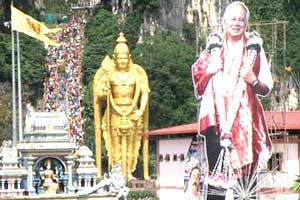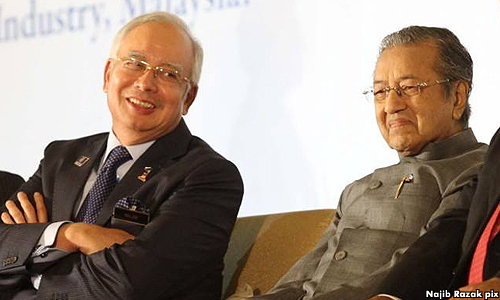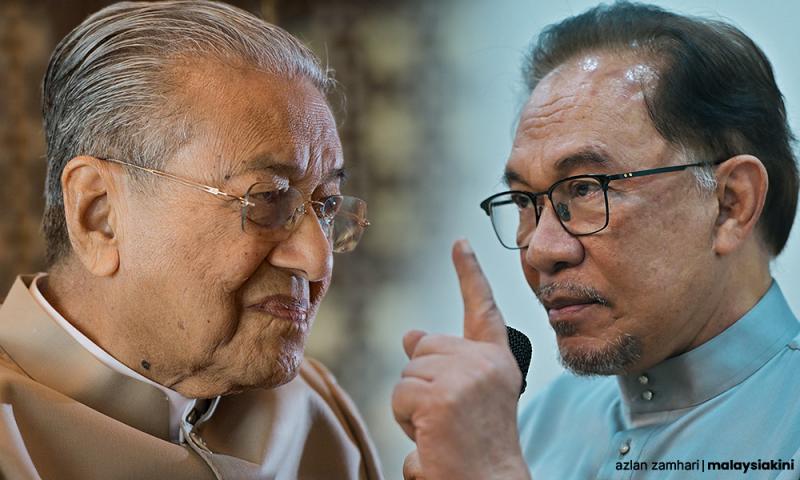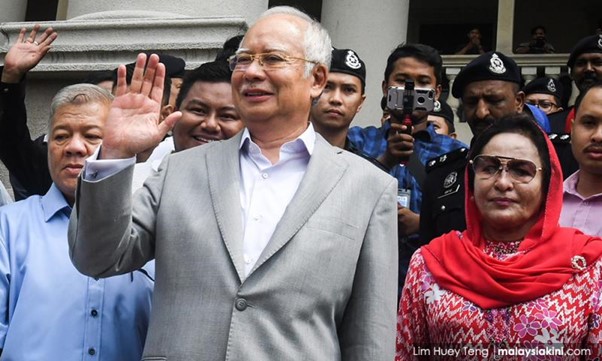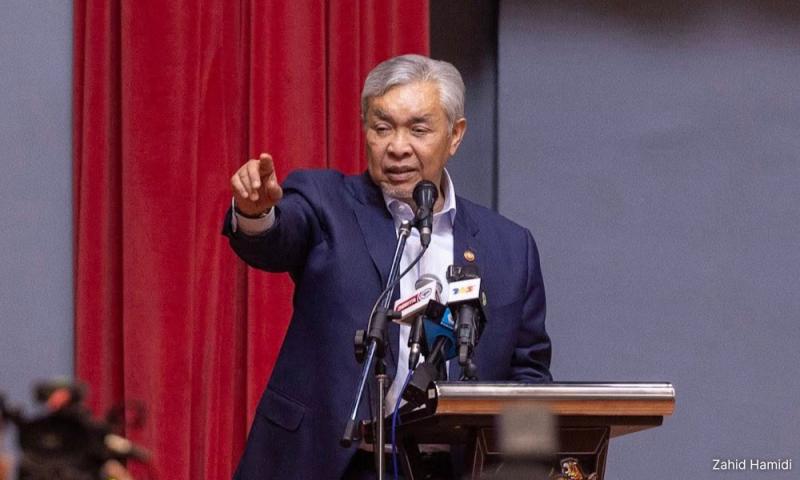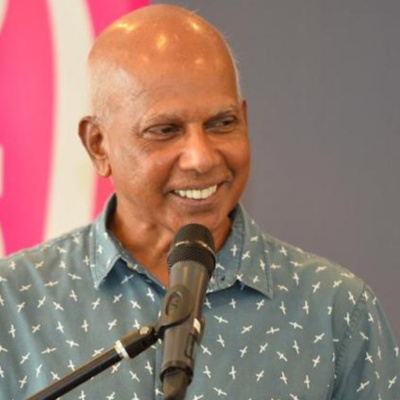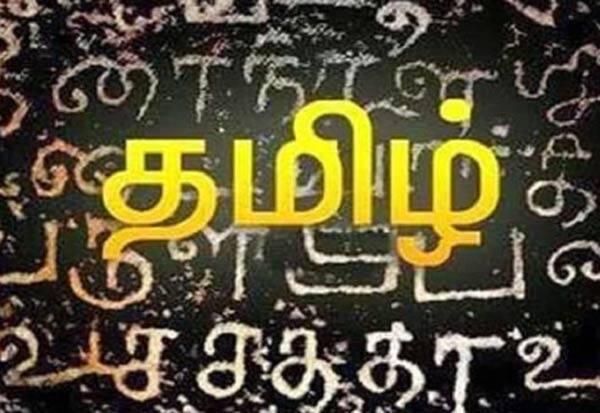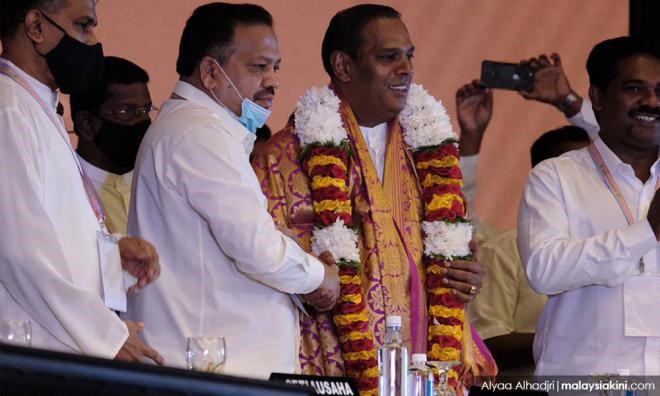-Abdul Aziz Bari, August 2, 2016.
 COMMENT: In any democracy, resignation or calling for the government to resign is no big deal. It is indeed part and parcel of the democratic process.
COMMENT: In any democracy, resignation or calling for the government to resign is no big deal. It is indeed part and parcel of the democratic process.
From the citizens’ point of view, they have every right to have a government that is free from any doubts over its legitimacy and fitness to remain in office.
It is therefore strange for Ambiga Sreenivasan to receive brickbats for saying that Prime Minister Najib Abdul Razak should resign in the wake of devastating disclosure of various questionable and illegal dealings made by 1MDB – which is owned by the Malaysian government – in Washington recently.
And perhaps it is only in a kleptocracy that a beleaguered prime minister has the guts to say that he has to remain in office in order to protect the interests of the people. Najib made a statement to that effect in a Raya do in his parliamentary constituency of Pekan over the weekend.
Just compare what Najib has been doing with that of his British counterpart, David Cameron, who resigned from his office following the Brexit vote, which was a rejection of his policy to remain in the European Union (EU). It would be recalled that Cameron assumed the position at No 10 Downing Street in 2010, through a coalition with the Liberal-Democrats in the aftermath of the general election that year.
Somehow, Cameron (photo) managed to lead the Conservatives to form a government on their own in the subsequent 2015 general election. But a mere defeat in a referendum on whether Britain should remain in EU has eventually led to his exit from office.
referendum on whether Britain should remain in EU has eventually led to his exit from office.
To most of us in Malaysia that was astounding. But over there – and in fact in other Westminster countries like Australia and even India – such a resignation is normal. Indeed it is part and parcel of their political culture.
From the point of the constitution, such is actually inherent in the notion of responsible government; a system of government where the cabinet is answerable to the House. Where its continuance and survival depends on the support of the majority in the House.
Not only on matters of grave importance such as the 1MDB. Even routine and mundane issues, such as the failure of government agencies or rail accidents, could lead to the resignation of cabinet ministers.
This is the essence and implication of ministerial responsibility. As civil servants are not elected and therefore beyond the reach of the House, it is the minister in charge who has to pay the price.
There is no question of pointing the finger at civil servants. Or saying that the minister is unaware of the fiasco. From the constitutional perspective, the only question that matters is under whose portfolio or responsibility the problem at hand falls.
The minister may in fact be unaware, but that is not a good defence. What is crucial is the matter is under his or her care and thus, he or she has to pay the price.
We are here dealing with responsibility in the constitutional sense. Not whether the 1MDB scandal, as exposed in Washington, is criminal or civil.
Government must shoulder responsibility
In the aftermath of the Washington exposé, the Najib administration has been trying to limit the damage by saying that the government is not involved, and that it is a matter for the individuals cited by the claim made by the US government to answer.
Constitutionally, that is not good enough. What is important here is that 1MDB was established by the Najib government and it still owns the entity. As such, the buck does not stop with Jho Low or Riza Aziz or perhaps Arul Kanda Kandasamy.
The responsibility rests with Najib and his government. Some of those characters may have to be charged in court. But that is not the concern of the constitution, which deals with political accountability.
And here lies the reason why Ambiga (photo) was right to call for the resignation. As Najib is the prime minister and the pillar of the government, all the ministers have to go down with him.
to go down with him.
From the perspective of the constitution, there is no need to wait until the matter is eventually concluded in the US. Or whether the case remains a civil one.
Najib might not know all the dealings concluded by 1MDB. But that is not the issue. The point is 1MDB was created by Najib’s government and it must shoulder the responsibility.
Who is going to be the next prime minister? This is the job of the Yang di-Pertuan Agong. It is for him to decide whether there is someone in the present Parliament who enjoys enough majority support to head the new government.
What is crucial is that the Agong must have a government to advise him all the time. Our constitutional system is unique as the Agong is not alone. He has the nine brother rulers in the Conference of Rulers to help out.
Here lies the justification for the rulers to do something to find the way out from the 1MDB scandal, especially when all the agencies and channels are found to be ineffective.
ABDUL AZIZ BARI is a constitutional law expert. He was a professor of law at UIA Malaysia until he left in 2012 and later taught at Unisel, during 2013-15.



